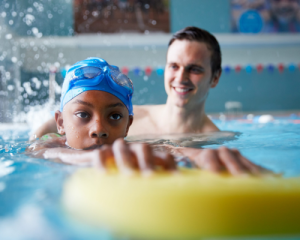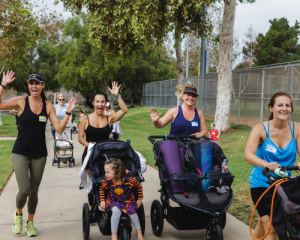Start the year off with some emergency preparedness and planning.
The new year is a time for learning from the past and looking forward toward the future.
Considering the recent fires and power outages that hit Southern California, it’s a good time to think about preparedness.
“Orange County has multiple hazards which can affect public safety,” said Donna Boston, director of Emergency Management Division for the Orange County Sheriff’s Department and AlertOC spokesperson. “Personal emergency preparedness is a necessary action we all must take.”
She said Southern Californians should prepare for natural disasters like earthquakes, floods and fires.
“If you prepare for the impacts of a large earthquake, you’ll essentially be prepared for any type of disaster,” she said. “Personal emergency preparedness is critical because public safety responders will be working on the most critical life safety situations in a catastrophic disaster situation. We all must be prepared to take care of ourselves, our family and even our neighbors when a disaster strikes.”
A large part of preparation is creating an emergency kit for each member of the family, as well as developing an emergency plan.
Boston said that some of the essentials of an emergency kit include fresh water (one gallon, per person, per day for three days); canned or dried food (at least a three-day supply); clothes; blankets; prescription medications; a flashlight with extra batteries; a battery-powered or hand-crank radio and a NOAA Weather Radio with tone alert and extra batteries for both; a can opener; a first aid kit and extra cell phone chargers.
“Most importantly, make sure to have extra cash on hand in case there are power outages which could impact credit card machines and ATMs,” she said.
Another important component of emergency prep involves planning things out as a family.
“Take time with your family to fill out a family emergency plan, or how you and your family will remain in contact during an emergency,” she said.
She said it’s a good idea that families identify a place near the home to meet in case of an emergency. Families should also create a list of important phone numbers. That list should include a family member or friend who lives out of state because phone lines are often busy or out of service during major disasters, and it may actually be easier to make a long-distance phone call than to make a call just across town.
Boston said it’s important to encourage kids to become actively involved in the process.
“Quiz them about your family plan at dinner,” she said. “Explain where your family will meet after an emergency. Shop for your emergency supply kit with the kids. And, make [sure] that they know where you store your emergency kits.”
There are other things families can do to plan for emergencies, including taking local training courses with the Community Emergency Response Team (CERT), which is offered by several cities to train volunteers for disaster preparedness. Once these volunteers are certified, they can assist in emergency situations in their areas.
“If your city does not have a CERT program, you may participate in the nearest city’s CERT training,” said Boston.
Another thing community members can do is register their cell phones with alertoc.org to receive emergency alerts from local government public safety responders.
“Families should also be aware of the hazards that can impact their homes, schools and businesses,” she said.
For parents with very young children, pets and other special circumstances, Boston said parents should review and follow the instructions on how to make an emergency preparedness kit and then add specialized supplies including formula for infants, any daily medicines and other necessities that families depend on.
“For families with pets, make sure to bring extra water and food, collars and leashes, along with comfort toys or blankets,” she said.
She said that though these kinds of situations can be stressful, preparation can go a long way to help you keep your cool.
“Families should talk about what happens during an emergency and discuss how they will communicate with each other,” she said. “When we understand what happens in emergencies, then we know how to react. … It is critical to listen to instructions from public safety officials and to follow them.”
Basic Emergency Kit Checklist
(From ReadyOC.org)
- Water: one gallon of water per person per day for at least three days, for drinking and sanitation
- Food: at least a three-day supply of non-perishable food
- Battery-powered or hand-crank radio and a NOAA Weather Radio with tone alert and extra batteries for both
- Flashlight and extra batteries
- First aid kit
- Whistle to signal for help
- Dust mask: to help filter contaminated air and plastic sheeting and duct tape to shelter-in-place
- Moist towelettes, garbage bags and plastic ties for personal sanitation
- Wrench or pliers to turn off utilities
- Can opener for food (if kit contains canned food)
- Maps for Orange, Los Angeles and San Diego counties
- Cell phone with chargers
- Any prescription medication you (or a family) requires on a daily basis
By Jessica Peralta








Leave a Reply